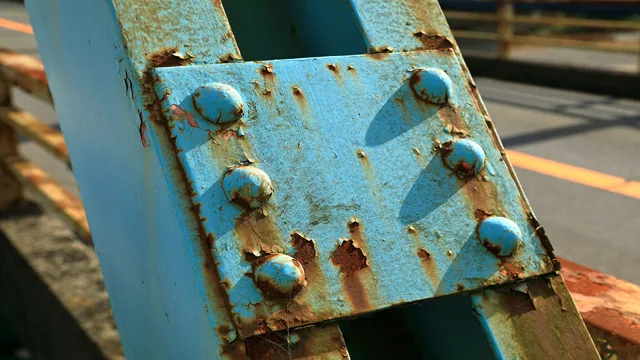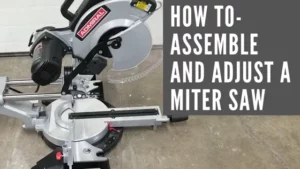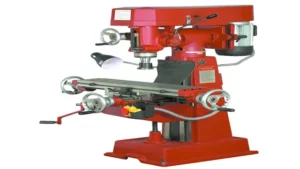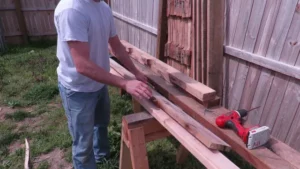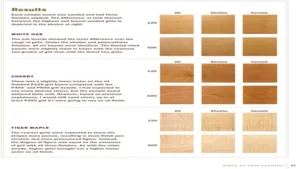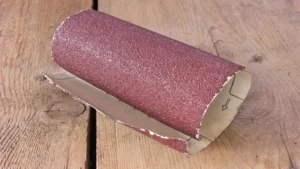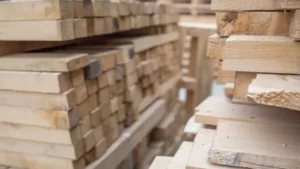Have you ever tried using vinegar to remove rust from metal surfaces only to be greeted with the unappealing sight of flash rust? If you have, don’t worry, you’re not alone in this struggle. Flash rust is a common issue that occurs after the use of vinegar to remove rust from metal surfaces. It can be frustrating to see your efforts go to waste, but fear not, there are a few tips and tricks to prevent flash rust and prolong the life of your metal surfaces.
In this blog, we will explore some effective ways to prevent flash rust after vinegar treatment and provide some insights on how to maintain your metal items’ integrity for years to come. So, sit tight, grab a coffee, and join us as we delve into the world of preventing flash rust after vinegar use.
Understanding Flash Rust
Have you ever noticed orange or brownish stains on your metal surfaces after using vinegar? This is called flash rust, which occurs when the metal reacts with oxygen and moisture present in the air. Flash rust can happen quickly, and it is crucial to prevent it from spreading further. So, how can you stop flash rust after vinegar? The first step is to rinse off the vinegar solution thoroughly with water and then dry the metal surface as soon as possible.
If the rust has already formed, use a rust converter solution that will stop the rusting process and prevent future occurrences. Additionally, applying a rust inhibitor coating made of oil, wax, or paint on the metal surface can extend its lifespan and prevent flash rust. Remember to store metal objects in dry places and keep them away from moisture and humidity to prevent flash rust.
By taking proper measures, you can prevent flash rust and maintain the quality of your metal surfaces.
What is Flash Rust?
Flash Rust Flash rust is the rapid formation of rust on the surface of a metal, which can occur within hours or even minutes after the metal has been exposed to moisture. This type of rust can be a major problem for metal structures and equipment, as it can weaken the metal and compromise its integrity. Flash rusting can occur due to a variety of factors, including high humidity, moisture, condensation, and temperature changes.
To prevent flash rust from occurring, it is important to take steps to keep metal surfaces clean and dry, and to apply a rust inhibitor or protective coating as soon as possible. In addition, regular maintenance and inspections can help identify and address any signs of rust before they become a major problem. Overall, understanding the causes and effects of flash rust is essential for preserving the longevity and integrity of metal structures and equipment.
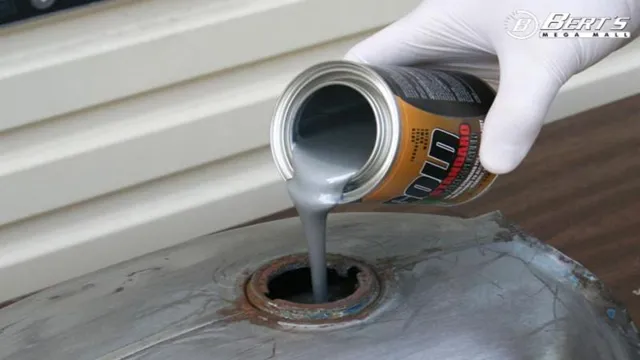
Why Does Vinegar Cause Flash Rust?
Flash rust is a phenomenon that occurs when freshly cleaned metal surfaces are exposed to air and moisture, causing rust to appear almost instantly. This problem is particularly prevalent when using vinegar as a cleaning agent, as it can cause flash rust to occur. But why does vinegar cause this problem? The answer lies in vinegar’s high acidity level.
The acidic nature of vinegar acts as a catalyst, speeding up the oxidation process that leads to flash rust. When vinegar comes into contact with metal surfaces, it removes any existing protective coatings and accelerates the rusting process, leading to the rapid formation of rust. Therefore, it’s crucial to thoroughly dry metal surfaces immediately after using vinegar to prevent flash rust from occurring.
Preventing Flash Rust
Flash rust can quickly become a major headache after using vinegar to clean your metal surfaces. The good news is that there are a few steps you can take to prevent flash rust from forming. The first thing you need to do is ensure that the metal surface is completely dry before applying any protectant.
Otherwise, any remaining moisture can react with the unprotected metal surface and cause flash rust. Once the surface is dry, you will need to apply a rust inhibitor. Make sure to choose an inhibitor that is specifically designed to prevent flash rust.
Additionally, you can also consider using a topcoat or sealant to further protect the metal surface. By following these steps, you can effectively prevent flash rust from forming after using vinegar on your metal surfaces.
Neutralize the Acidic Vinegar
Flash rust is a common problem when it comes to painting metals. It occurs when moisture combines with iron on the metal surface, causing oxidation. To prevent this, using vinegar as an acid-cleaning agent is a good idea.
However, vinegar is highly acidic and can actually cause flash rust on its own. To neutralize the acidic vinegar, mix it with baking soda, which is a basic compound. This not only neutralizes the acidity of the vinegar but also creates an effervescent reaction that will help to remove any rust or debris on the surface.
By doing this, you can prevent flash rust and ensure that your painting surface is clean and ready for painting. So, next time you decide to use vinegar to clean your metal surface, remember to mix it with baking soda to neutralize its acidity and prevent flash rust.
Apply a Rust Inhibitor
Rust is the enemy of metal surfaces, but it can be prevented. One effective method for preventing flash rust is by applying a rust inhibitor. A rust inhibitor creates a protective layer over the metal surface, preventing moisture and air from coming into contact with the metal.
This layer keeps the surface clean and dry, and helps to prevent the formation of rust. When choosing a rust inhibitor, it’s important to consider the type of metal you’re working with and the conditions it will be exposed to. Some rust inhibitors are better suited for certain metals or environments.
By applying a good quality rust inhibitor, you can ensure that your metal surfaces stay rust-free for longer, saving you time, money and hassle in the long run.
Dry the Surface Quickly
Flash rust is a common problem when dealing with metal surfaces. When exposed to air and moisture, iron reacts to form iron oxide or rust, which can damage appearance and performance. To prevent flash rust from forming, it is essential to dry the surface quickly.
This can be done using a variety of methods, such as wiping the surface with a clean cloth, using hot air or infrared lamps, or applying a rust inhibitor. It is important to avoid using abrasive tools or solvents, as they can scratch or damage the surface. Additionally, it is recommended to store the metal in a dry and protected environment to prevent any further exposure to moisture.
By taking these steps, you can help prevent flash rust and ensure your metal surfaces remain rust-free.
Dealing with Existing Flash Rust
After successfully removing flash rust using vinegar, the next step is to prevent it from reoccurring. Flash rusting generally occurs in a damp and humid environment, so it is essential to keep the environment dry. You can use a dehumidifier or air conditioner in your surroundings to keep the humidity level down.
Applying a rust converter or inhibitor like phosphoric acid on the rusted surface also helps in preventing flash rusting. It creates a passive layer on the surface that protects it from rust formation. Applying an oil-based primer or paint on the surface can also be an effective way to prevent flash rusting.
Remember to address the root cause of the problem to prevent the formation of flash rust.
Sand the Surface
If you want to paint over metal surfaces, it’s essential to first tackle the existing flash rust. The best way to deal with this is by sanding the surface before you start priming. Sanding helps to remove any loose rust and creates a smooth surface for the paint to adhere to.
However, before you start sanding, you must protect yourself by wearing safety goggles, a dust mask, and gloves. The process of sanding generates a lot of dust and debris, which can be harmful to your health. Additionally, it’s essential to choose the right sandpaper grit – a coarser grit is suitable for removing thick rust, while a finer grit is best for smoothing the surface.
Always sand in the direction of the grain to avoid creating scratches and rough patches that can interfere with the paint job. Remember, sanding is a crucial step in prepping metal surfaces for painting. Don’t skip this step if you want your painted surface to last long and look beautiful.
Keyword: Flash Rust
Apply a Rust Converter
If you’re dealing with existing flash rust on a metal surface, it’s important to take action to prevent it from getting worse. One solution is to apply a rust converter, which is a product designed to convert rust into a stable compound that can be painted over. Before applying a rust converter, it’s important to remove any loose rust or other debris from the surface using a wire brush or sandpaper.
Once the surface is clean and dry, you can apply the rust converter using a brush or spray bottle. Allow the product to dry completely before painting or sealing the surface. Rust converters are typically made with phosphoric acid, which reacts with the rust to form a stable compound that prevents further corrosion.
By taking action to address flash rust, you can protect your metal surfaces from further damage and ensure their longevity.
Conclusion
And there you have it, folks! A simple yet effective way to stop flash rust after using vinegar. Remember, prevention is key when it comes to rust, so make sure to properly dry and seal any metal surfaces after exposure to vinegar or other rust-inducing elements. As for the vinegar, save it for your salads and pickles, and leave the rust-busting to the professionals (or at least to this nifty little hack).
With a little know-how and some elbow grease, you can keep your metal surfaces looking shiny and new for years to come. Happy rust-fighting!
FAQs
What causes flash rust after using vinegar as a rust remover?
Vinegar contains acetic acid that can breakdown the protective layer on metal surfaces, leaving them vulnerable to rusting. This can lead to flash rusting if left untreated.
How can you prevent flash rust after using vinegar?
After using vinegar to remove rust, it’s best to neutralize the surface by washing it with baking soda and water. Then, dry the surface thoroughly and apply a rust converter or inhibitor to prevent flash rust.
Can you use vinegar to remove rust from all types of metals?
While vinegar can be effective at removing rust from iron or steel, it may not work as well on rust stains from other types of metals like copper or aluminum.
What is flash rust?
Flash rust is the rapid formation of rust on metal surfaces shortly after they have been cleaned or exposed to water. This can occur when the metal is not adequately protected or treated after cleaning.
How long does it take for flash rust to occur?
Flash rust can occur within minutes to hours after a metal surface has been cleaned or exposed to water, especially in humid or wet conditions.
Can you remove flash rust once it has occurred?
Yes, flash rust can be removed by using a rust remover or by lightly sanding the affected area. It’s important to then treat the surface with a rust inhibitor to prevent further rusting.
Are there any natural alternatives to using vinegar to remove rust?
Yes, lemon juice, baking soda, and even potato slices can also be used to remove rust from metal surfaces. However, these may not be as effective as vinegar or commercial rust removers.
